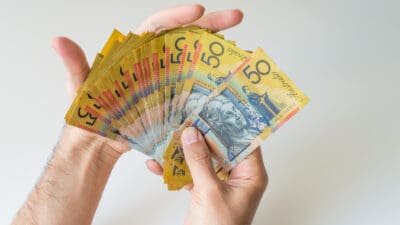If I were looking to invest $40,000 into the Australian share market, I wouldn't be aiming for a quick profit.
I would put my money to work over the long term with the aim of growing that investment into $1 million one day.
But how realistic is turning $40,000 into $1 million with ASX shares? The good news is that it is very realistic if you have time on your side, thanks to the power of compounding.
Turning $40k into $1 million with ASX shares
As of the end of 2021, the Australian share market had provided investors an average return of 9.58% per annum over a 30-year period.
Given that this is broadly in line with the historical returns generated on Wall Street, I believe it is fair to expect something similar over the next 30 years. Though, it is worth remembering that past performance is no guarantee of future returns.
If I were to make a single investment of $40,000 into the share market and earn that same level of return for 30 years, I would fall a little short of my aim at approximately $623,000.
However, it wouldn't take too much longer to reach my target if the returns continued.
Although it has taken 30 years to grow my original investment by almost $600,000, the power of compounding means that it would take only another 5.2 years to take that number to the $1 million mark.
Getting there sooner
If I were able to make a few smaller investments along the way, I could potentially reach my goal even sooner.
Starting with $40,000 and then adding $500 a month, or $6,000 a year, would grow my portfolio to the $1 million mark after 25 years based on an average annual return of 9.58%.
Increase the annual contribution to $12,000 a year, and we're there in approximately 20 years.
But which ASX shares should you buy?
If you want to invest for the long term, my advice is to focus on buying ASX shares with strong business models, competitive advantages, and favourable long-term outlooks.
I believe ASX shares Altium Limited (ASX: ALU), CSL Limited (ASX: CSL), and Xero Limited (ASX: XRO) tick these boxes, so they could all be worth a closer look.
Alternatively, investors could consider exchange-traded funds (ETFs) based on indices such as the Betashares Nasdaq 100 ETF (ASX: NDQ) and Vanguard Australian Shares Index ETF (ASX: VAS).









